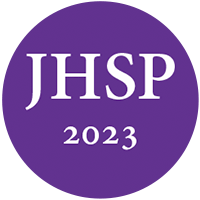The professional home for health service psychologists.
Join a community of 15,000 psychologists and trainees.
Learn it today. Apply it tomorrow.
Connecting you to what you need in your career.
Making a difference.
Rosenquist, S. (2020). Psychological Evaluations for Assisted Reproductive Intervention: Guidelines for Clinical Practice. Journal of Health Service Psychology, 46(1), 21–28. https://doi.org/10.1007/s42843-020-00004-3
Psychological factors present significant concerns when assisted reproductive technologies (ART) are needed, whether for the treatment of infertility or for nontraditional family building. Psychological evaluation of all parties involved is recommended when treatment involves gamete donation or the services of a gestational carrier. The American Society for Reproductive Medicine (ASRM) has offered guidelines for the psychological evaluation of involved individuals. These ASRM guidelines appear long and complex, but a careful reading suggests they are fairly similar to a routine in-depth psychological evaluation. This article reviews the process of doing an assisted reproductive psychological evaluation, the most critical psychosocial topics to explore, and assessment of the psychological capacity to successfully participate in an assisted reproductive procedure. Report preparation is also covered.
American Bar Association Model Act Governing Assisted Reproductive Technology February 2008 (2008). Family Law Quarterly, 42(2), 171-202. www.jstor.org/stable/25740653
American Society for Reproductive Medicine (2019). https://www.asrm.org/about-us/vision-of-asrm/.
ASRM. (2008). 2008 Guidelines for gamete and embryo donation: a Practice Committee report. Fertility & Sterility, 90(5), S30-S44. https://doi.org/10.1016/j.fertnstert.2008.08.090
Boivin, J. (2003). A review of psychosocial interventions in infertility. Social Science & Medicine, 57(12), 2325-2341. https://doi.org/10.1016/s0277-9536(03)00138-2
Boivin, J., Domar, A. D., Shapiro, D. B., Wischmann, T. H., Fauser, B. C. J. M., & Verhaak, C. (2012). Tackling burden in ART: an integrated approach for medical staff. Human Reproduction. https://doi.org/10.1093/humrep/der467
Boivin, J., & Gameiro, S. (2015). Evolution of psychology and counseling in infertility. Fertility & Sterility, 104(2), 251-259. https://doi.org/10.1016/j.fertnstert.2015.05.035
Cammack, A. L., Hogue, C. J., Drews-Botsch, C. D., Kramer, M. R., Pearce, B. D., Knight, B., . . . Newport, D. J. (2018). An exploratory study of whether pregnancy outcomes influence maternal self-reported history of child maltreatment. Child Abuse Negl. https://doi.org/10.1016/j.chiabu.2018.01.022
Casolo, J., Curry-Ledbetter, C., Edmonds, M., Field, G., O’Neill, K., & Poncia, M. (Eds.). (2019). Assisted Reproductive Technologies. Washington, DC: The Georgetown Journal of Gender and the Law, 2, 313-354.
Centers for Disease Control and Prevention. 2017 Assisted Reproductive Technology Fertility Clinic Success Rates Report. Atlanta (GA): US Dept of Health and Human Services; 2019.
Cha, A. E. (2019, September 14). The children of Donor H898. The Washington Post. https://www.washingtonpost.com/health/the-children-of-donor-h898/2019/09/14/dcc191d8-86da-11e9-a491-25df61c78dc4_story.html
Edward, K.-l., Castle, D., Mills, C., Davis, L., & Casey, J. (2015). An integrative review of paternal depression. American Journal of Men’s Health, 9, 26-34. https://doi.org/10.1177/1557988314526614
Fertility Clinic Success Rate and Certification Act of 1992, 42 U.S.C. § 263a-7 (1992). https://www.congress.gov/bill/102nd-congress/house-bill/4773/text
Galst, J. P. (2018). The Elusive Connection Between Stress and Infertility: A Research Review With Clinical Implications. Journal of Psychotherapy Integration. 28(1), 1–13. https://doi.org/10.1037/int0000081
Gentile, S., & Fusco, M. L. (2017). Untreated perinatal paternal depression: Effects on offspring. Psychiatry Res, 252, 325-332. https://doi.org/10.1016/j.psychres.2017.02.064
Gourounti, K., Anagnostopoulos, F., Potamianos, G., Lykeridou, K., Schmidt, L., & Vaslamatzis, G. (2012). Perception of control, coping and psychological stress of infertile women undergoing IVF. Reproductive BioMedicine Online, 24(6), 670-679. https://doi.org/10.1016/j.rbmo.2012.03.002
Greil, A. L., Slauson-Blevins, K., & McQuillan, J. (2010). The experience of infertility: a review of recent literature. Sociol Health Illn, 32(1), 140-162. https://doi.org/10.1111/j.1467-9566.2009.01213.x
Hasanpoor-Azghdy, S. B., Simbar, M., & Vedadhir, A. (2014). The emotional-psychological consequences of infertility among infertile women seeking treatment: Results of a qualitative study. Iranian Journal of Reproductive Medicine, 12(2), 131-138.
Kim, J., & Hicks, J. A. (2015). Happiness begets children? Evidence for a bi-directional link between well-being and number of children. The Journal of Positive Psychology, 62-69. https://doi.org/10.1080/17439760.2015.1025420
Luk, B. H.-K., & Loke, A. Y. (2015). The impact of infertility on the psychological well-being, marital relationships, sexual relationships, and quality of life of couples: A systematic review. Journal of Sex & Marital Therapy, 41(6), 610-625. https://doi.org/10.1080/0092623X.2014.958789
Moura‐Ramos, M., Gameiro, S., Canavarro, M. C., Soares, I., & Almeida‐Santos, T. (2015). Does infertility history affect the emotional adjustment of couples undergoing assisted reproduction? The mediating role of the importance of parenthood. British Journal of Health Psychology, 21, 302-317. https://doi.org/10.1111/bjhp.12169
Murugappan, G., Farland, L. V., Missmer, S. A., Correia, K. F., Anchan, R. M., & Ginsburg, E. S. (2018). Gestational carrier in assisted reproductive technology. Fertil Steril, 109(3), 420-428. https://doi.org/10.1016/j.fertnstert.2017.11.011
Paulson, J. F., & Bazemore, S. D. (2010). Prenatal and postpartum depression in fathers and its association with maternal depression: A meta-analysis. Journal of the American Medical Association, 303(19), 1961-1969. https://doi.org/10.1001/jama.2010.605
Payne, J., Fields, E., Meuchel, J., Jaffe, C., & Jha, M. (2010). Post adoption depression. Archives of Women’s Mental Health, 13, 147-151. http://dx.doi.org/10.1007/s00737-009-0137-7
Perkins, K. M., Boulet, S. L., Jamieson, D. J., Kissin, D. M., & National Assisted Reproductive Technology Surveillance System Group (2016). Trends and outcomes of gestational surrogacy in the United States. Fertil Steril, 106(2), 435-442 e2. https://doi.org/10.1016/j.fertnstert.2016.03.050
Practice Committee of the American Society for Reproductive Medicine & Practice Committee of the Society for Assisted Reproductive Technology (2017). Recommendations for practices utilizing gestational carriers: a committee opinion. Fertil Steril, 107(2), e3-e10. https://doi.org/10.1016/j.fertnstert.2016.11.007
Schmidt, L., Holstein, B. E., Boivin, J., Sangren, H., Tjornhoj-Thomsen, T., Blaabjerg, J., . . . Rasmussen, P. E. (2003). Patients’ attitudes to medical and psychosocial aspects of care in fertility clinics: findings from the Copenhagen Multi-centre Psychosocial Infertility (COMPI) Research Programme. Hum Reprod, 18(3), 628-637. https://doi.org/10.1093/humrep/deg149
Senecky, Y., Agassi, H., Inbar, D., Horesh, N., Diamond, G., Bergman, Y. S., & Apter, A. (2009). Post-adoption depression among adoptive mothers. Journal of Affective Disorders, 115(1-2), 62-68. https://doi.org/10.1016/j.jad.2008.09.002
Sunderam, S., Kissin D. M., Zhang Y., et al. (2019). Assisted Reproductive Technology Surveillance — United States, 2016. MMWR Surveill Summ 2019;68(No. SS-4):1–23. DOI: http://dx.doi.org/10.15585/mmwr.ss6804a1
Swedsen, J., & Mazure, C. (2000). Life stress as a risk factor for postpartum depression: current research and methodological issues. Clinical Psychology: Science & Practice, 7(1), 17-32.
Copyright © 2025 All rights reserved. National Register of Health Service Psychologists








